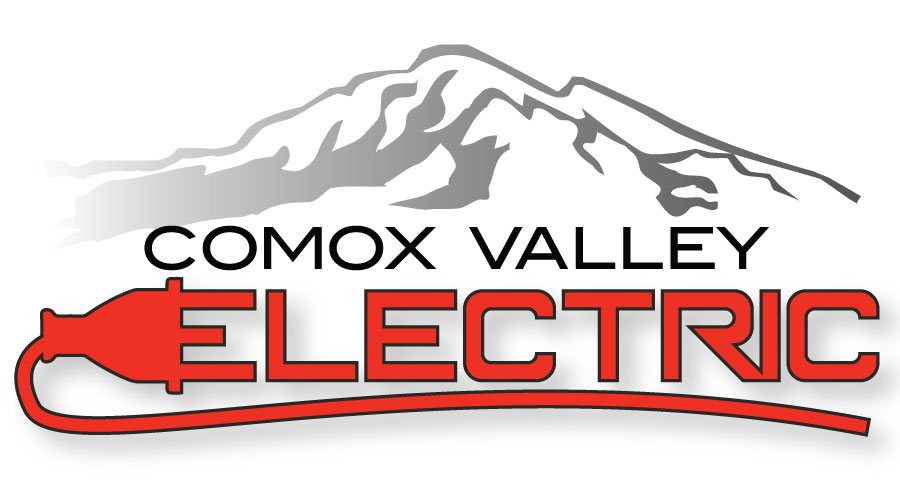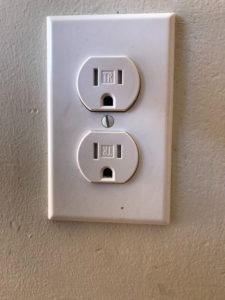To illustrate the potential dangers of using extension cords, we wanted to share a recent service call experience. In April, we were called to investigate a burned out receptacle for a young family in Courtenay. The homeowners had been charging an electric car using an extension cord but but unbeknownst to them, the extension cord was not the correct gauge wire for the current draw. This innocent mistake lead to dangerous overheating (and melting) of the receptacle.
Fortunately, this situation was noticed immediately (thanks to an acrid burning smell) and an electrical fire was avoided. We were able to check the electrical system and safely replace the receptacle with a new tamper resistant outlet. While this situation did (fortunately) end well, the risk of an electrical fire was very real for this family and we shudder to think of what might have happened if this incident occurred during the night while this family was sleeping.
Safety is a very important priority here at Comox Valley Electric Ltd. We take the safety of our clients, employees and the community at large very seriously and always look for ways to educate and inform our fellow community members on the topic of electrical safety. With that thought in mind, we want to raise awareness about the dangers of using extension cords and share some important safety tips for homeowners.
Dangers of Using Extension Cords – 5 Common Mistakes To Avoid
- Using the wrong gauge of extension cord
- Using an ungrounded extension cord
- Using an extension cord that is too long
- Plugging too many electrical devices into an extension cord
- Using extension cords not approved for use in Canada
How To Use Extension Cords Safely
1. Household-use extension cords are labelled according to the size of wire inside the cord. Most are labelled with #12 AWG, #14AWG, or #16AWG. These numbers represent the “gauge” (or thickness) of the electrical wires within the extension cord. The larger the AWG number, the thinner the wire.
Electrical devices are manufactured with different gauges of wire in their power cords depending on the “draw” of electricity the device uses. Lengthening the cord on any electrical device (by using an extension cord) requires sizing up the wire gauge on the extension cord. Using an extension cord with too small a gauge of wire for the current draw will cause the wire and cord to heat up! This can lead to melting of receptacles, damage to your electrical device (and could potentially cause an electrical fire).
2. Match a grounded (3 prong) extension cord to a grounded (3 prong) electrical device cord. Always use an extension cord with a (third) grounding prong if your electrical device has a grounded (3 prong) cord plug. Never cut off the grounding prong!
3. When a long extension cord is used, this causes a “drop” in voltage (at the electrical device). For every 100′ of extension cord, you should increase the gauge (thickness) of wire to prevent current drop. As an example, if your electrical device has a wire size of #16AWG, you will want to INCREASE the wire size to #14AWG on the extension cord. This “stepping up” will prevent current drop over the 100′ run.
4. When too many electrical devices are plugged into one receptacle, overloading the circuit can occur. Extension cords should not be a used as a replacement for permanent electrical wiring! Extension cords should always be treated as a standard electrical outlet. You should not have more than 2 low draw devices plugged in to them. If a single high draw device is plugged in (such as an electric heater), do not plug in a second device as this will likely overload a standard circuit.
5. Always check this listing to see if your extension cord is approved for use in Canada. Counterfeit electrical goods are everywhere and homeowners should check each electrical device prior to purchase and use. Unapproved extension cords may be made from inferior materials and might not meet Canadian standards for safety.
We hope this article has provided useful information about avoiding the dangers of using extension cords. If you would like more information on this topic or would like to schedule a service call – please contact us. We’d be glad to help!


Recent Comments